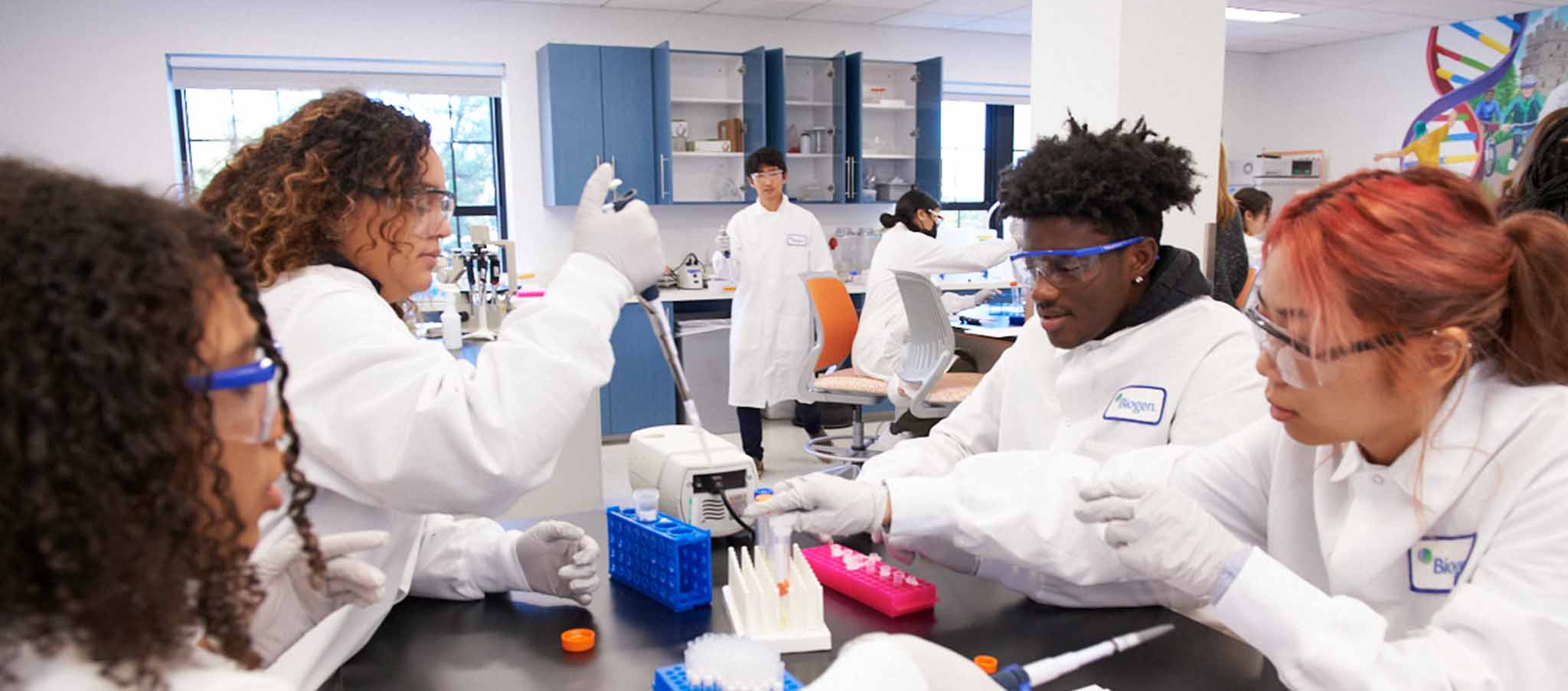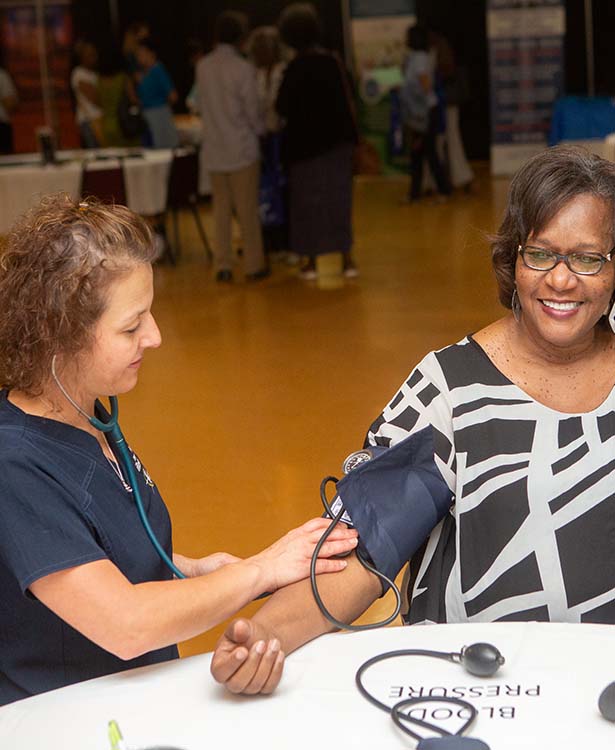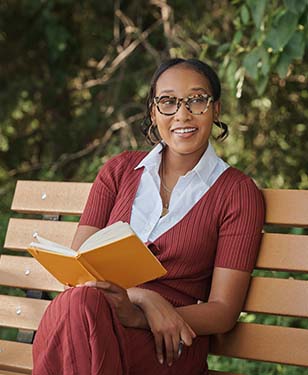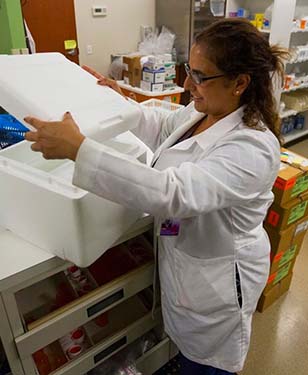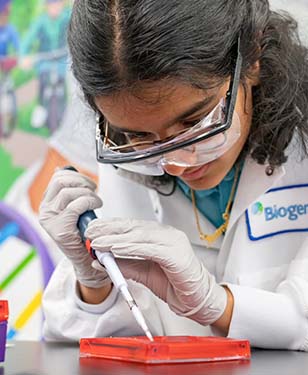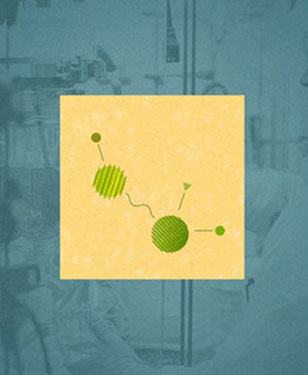“I remember this one girl from Cambridge: she was filling out the survey we give to students on their last day,” says Tracy Callahan, Biogen’s first Community Lab teacher. “She said to me, ‘I used to walk by and think that these were boring buildings. Now I know there's cool science going on in them.’ To me that was the whole point of why we began the Community Lab.”
Twenty years ago, former Biogen CEO Jim Mullen realized that the heart of the biotech industry sat in the backyard of a diverse community that was disconnected from the world of biotech and had no idea what kinds of innovation happened right next door. The Community Lab started out as a one-week program; within a year, it expanded to daily programming that offered opportunities to local students and Biogen employees alike.
